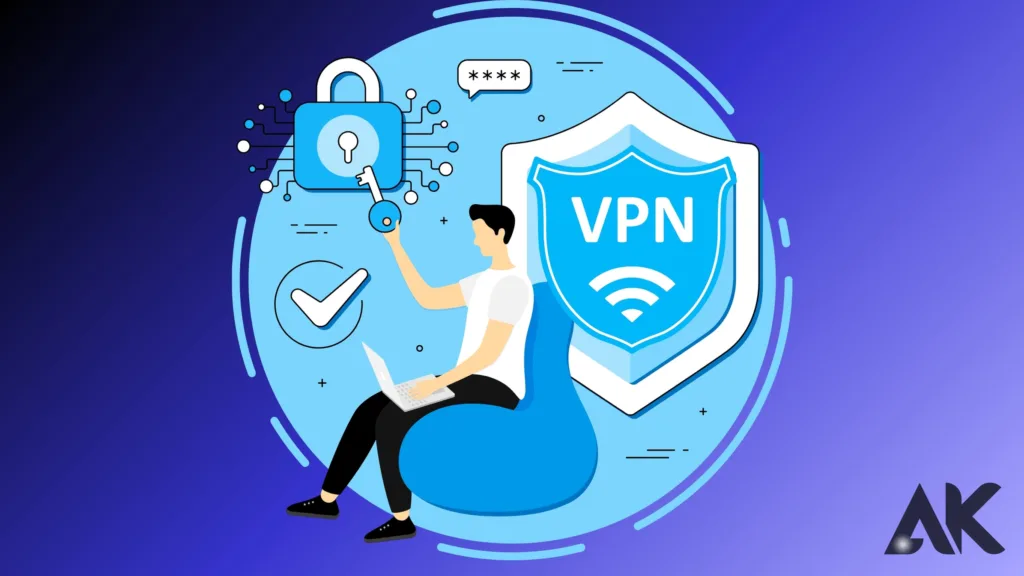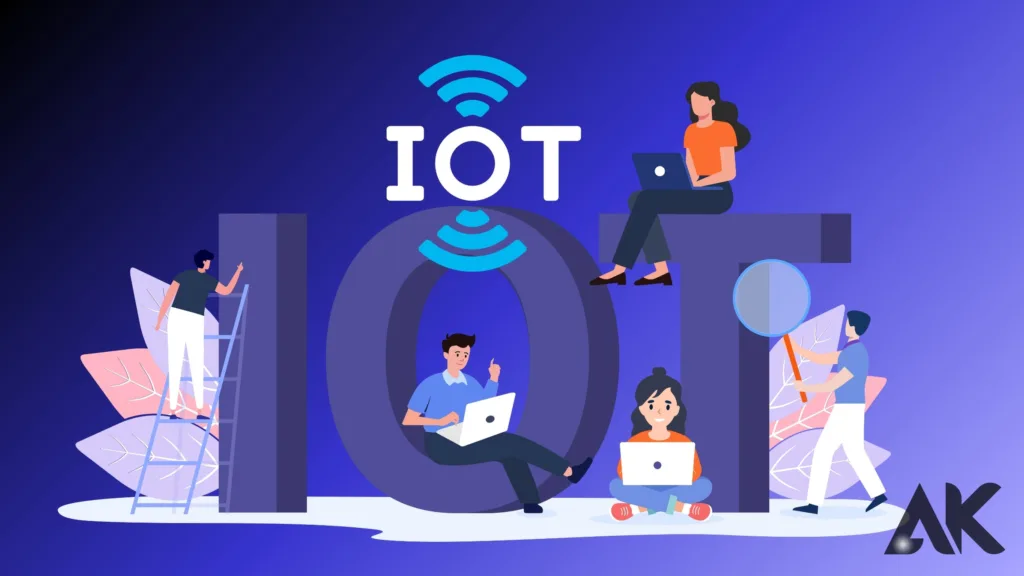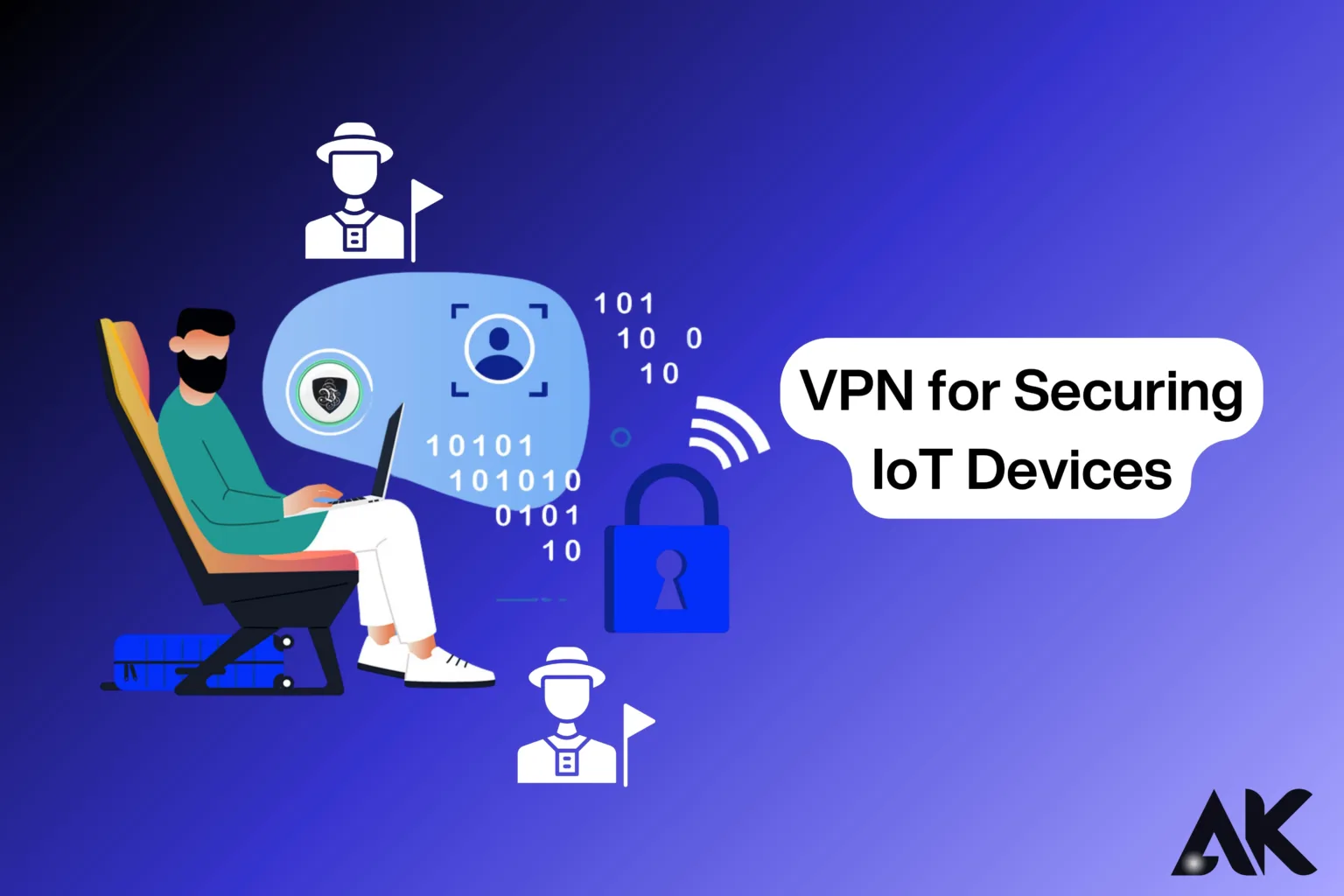In today’s connected world Securing your smart devices is more important than ever. The Internet of Things (IoT) has made life easier, from smart TVs to home security cameras. But they also create new vulnerabilities. That’s where a VPN comes in to secure your IoT devices. By encrypting your internet traffic, a VPN helps protect your devices from hackers and prying eyes. Ensuring that your personal information is safe.
With a VPN for securing IoT devices, you can have peace of mind that your smart devices are safe from cyber threats, whether you use a smart home assistant or a connected device. Taking this extra step can make all the difference in maintaining your privacy and security in an increasingly digital age.
What is a VPN and How Does It Work?

When it comes to securing IoT devices, VPNs are an essential tool in today’s interconnected world. It works by encrypting an IoT device’s internet traffic and routing it through a secure server. Protect sensitive data from cyber threats.
This ensures that hackers cannot intercept communications or exploit vulnerabilities within your smart home or industrial IoT network. By masking devices’ IP addresses, VPNs also hide their location. By adding an additional layer of anonymity.
Because IoT devices often lack strong built-in security measures, using a VPN to secure your IoT devices is a reliable way to protect your network and personal data.
Why IoT Devices Are Vulnerable

Due to the vulnerabilities present in most IoT systems, VPNs are critical in securing IoT devices. These devices often lack advanced security features. making it an easy target for cyber attacks Hackers can take advantage of weak passwords.
Outdated firmware and insecure connections for unauthorized access. This is especially worrisome for businesses that rely on smart homes or connected devices for their day-to-day operations.
By using a VPN to secure IoT devices, you create a secure tunnel that encrypts communications and protects sensitive data. This prevents hackers from blocking traffic or breaching the network. Ensuring your IoT ecosystem is safe from potential cyber threats
Benefits of Using a VPN for IoT Security

For securing IoT devices, VPNs provide important benefits. Especially in enhancing data protection and privacy, IoT devices often transmit sensitive data. This makes them vulnerable to hacking and data breaches.
To secure IoT devices by encrypting communications, a VPN ensures that data is secure and cannot be accessed by unauthorized users. It also hides the IP address of the device, making it more difficult for cybercriminals to track or exploit.
VPNs can also protect against DDoS and other cyberattacks. This can compromise IoT networks. As IoT devices become more integrated into homes and businesses, VPNs are an important tool for protecting your connected ecosystem.
How VPNs Protect IoT Networks
To secure IoT devices, VPNs play an important role in protecting connected networks from cyber threats. IoT devices often operate with minimal security. As a result, these devices are vulnerable to hackers and data breaches.
To secure IoT devices, a VPN creates a secure, encrypted channel between the device and the internet. This ensures that all submitted data remains private and cannot be accessed by unauthorized users.
It also hides the machine’s IP address, making it difficult for attackers to find or directly target it. By integrating a VPN into your IoT network, you improve security. Maintain data integrity and prevent potential violations.
Choosing the Right VPN for IoT Devices
Choosing the right VPN to secure your IoT devices is essential to ensuring strong protection for your network. IoT devices often lack advanced security measures. making it vulnerable to cyberattacks To secure IoT devices, a reliable VPN provides strong encryption.
It protects data sent between your device and the internet. It is compatible with a wide range of IoT devices, ensuring seamless integration into your network.
Additionally, features such as a no-logs policy and high-speed servers are essential to maintaining security and Performance Choosing a reliable VPN to secure your IoT devices will help protect your smart home or business ecosystem from potential cyber threats.
VPN and Smart Homes: Enhancing Security
A VPN for securing IoT devices in your smart home is an important step in protecting your connected ecosystem. Smart devices such as cameras, thermostats, and voice assistants can be vulnerable to cyber threats if they continuously transmit data.
To secure IoT devices, a VPN ensures that all communications are encrypted. Prevents hackers from capturing sensitive information. It also hides your device’s IP address. Makes attackers less visible By creating a secure network, a VPN adds a strong layer of protection.
It ensures that your smart home is private, secure, and free from unauthorized access or malicious cyber activity.
How a VPN Helps Protect Industrial IoT (IIoT)
VPNs for securing IoT devices are especially important in industrial IoT (IIoT) environments, where security breaches can have major consequences. IIoT systems control critical functions such as manufacturing, logistics, and management. energy This makes it a prime target for cyberattacks.
To secure IoT devices, a VPN creates a secure, encrypted communication path between the device and a central server. Protect sensitive data from interception. IP address masking also prevents attackers from identifying or accessing specific devices.
Using a VPN helps ensure operational continuity. Increase data confidentiality and protect against industrial network threats Ensuring the security of critical systems and infrastructure…
Potential Limitations of VPNs for IoT Devices
VPNs are a powerful tool for securing IoT devices, but they do have some limitations. Some IoT devices, especially older models or those with limited processing power, can be compromised. VPN software may not be supported, making using it challenging .
Additionally, VPN encryption to secure IoT devices can slow down network speeds. This may affect the performance of bandwidth-intensive IoT systems… Managing multiple IoT devices through a single VPN can also require advanced technical expertise.
Despite these challenges, a VPN is a solid security solution when combined with other measures like regular updates and strong passwords.
Best Practices for Combining VPNs and IoT Security
VPNs are most effective at securing IoT devices when combined with other security measures to create comprehensive protection. Start by making sure your IoT devices are updated with the latest firmware to patch known vulnerabilities.
Use a strong, unique password for each device to prevent unauthorized access. Pair this with a VPN to secure your IoT devices, which encrypts data and hides the device’s IP address, providing an additional layer of protection.
Enable network monitoring to detect unusual activity and isolate compromised devices if necessary. By combining these practices You can enhance the security of your IoT ecosystem and protect against cyber threats.
Conclusion
In summary, using a VPN to secure IoT devices is an important step in protecting your connected ecosystem from cyber threats. As IoT devices become more integrated into daily life Ensuring security is therefore important to maintain privacy and prevent unauthorized access.
A VPN encrypts communications, hides a device’s IP address, and adds an extra layer of protection against hackers. However, it’s important to remember that a VPN should be used in conjunction with other security measures, such as strong passwords and regular software updates. Doing so will ensure a more secure and resilient IoT network.
FAQS
Q1. How does a VPN help secure IoT devices?
A. A VPN encrypts data traffic between IoT devices and the internet, protecting sensitive information from hackers.
Q2. Can all IoT devices use a VPN?
A. Not all IoT devices support VPNs, especially older or low-powered models, which may lack compatibility.
Q3. Is using a VPN enough to secure my IoT devices?
A. While a VPN adds security, it’s important to also use strong passwords, enable updates, and follow other best practices for complete protection.

